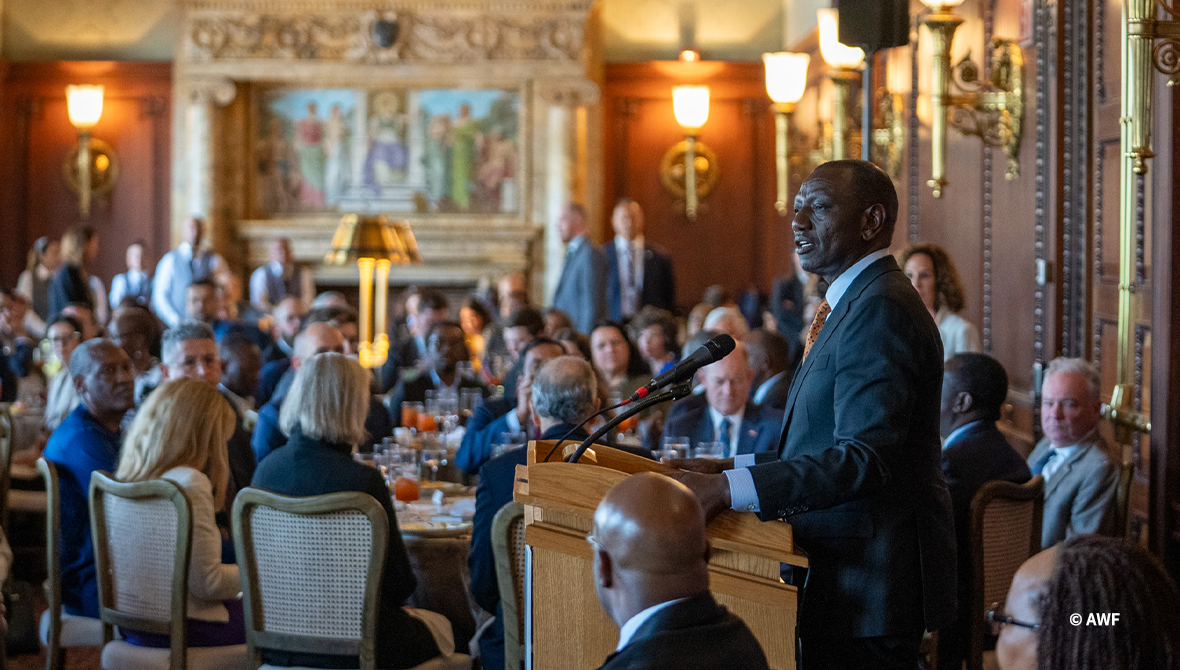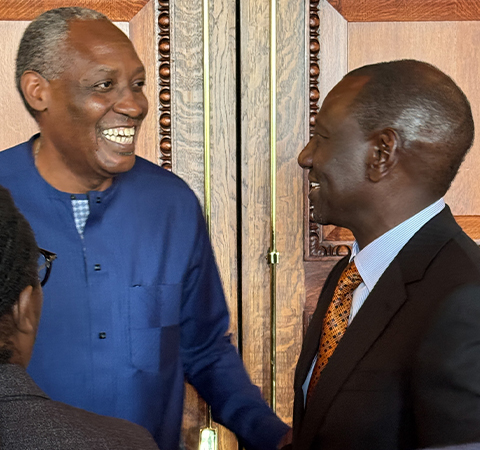AWF CEO Addresses Kenyan President William Ruto During State Visit to the United States

AWF CEO Kaddu Sebunya (seated far left) listens to Kenyan President William Ruto at the US Congressional luncheon.
As part of H.E. William Ruto’s state visit to the United States, the African Wildlife Foundation was honored to be accorded an opportunity to join President Ruto and several members of the US Congress on Capitol Hill at an event dubbed ‘The US-Kenya Dialogue on Conservation and Africa's Future.’ AWF partnered with the International Conservation Caucus Foundation (ICCF) and the US Embassy in Kenya to spotlight conservation as a key priority that can advance the two countries' mutual goals to attain sustainable development as the nations mark a history of 60 years of impactful partnership.
President Ruto's remarks on the impacts of climate change in Kenya and across Africa set the stage for his compelling argument on the importance of conservation. He boldly stated, “Although Africa's contribution to global emissions is minimal, the continent is disproportionately suffering from climate impacts. These impacts include loss of human life, damage to crops, the environment, and wildlife, as well as broader effects on economies, security, and stability. Despite these challenges, Africa will not position itself as a victim. Instead, Africa will work and agitate the rest of the world towards the development of solutions to the climate crisis, biodiversity loss and other global challenges.”

AWF CEO Kaddu Sebunya met with H.E. William Ruto, President of Kenya
Additionally, the President stressed the importance of making conservation people-centered and economically viable, with tangible benefits for communities, and as well as the importance of creating opportunities for youth, similar to what drives AWF’s approach to investing in youth through its Conservation Leadership program.
AWF CEO, Kaddu Sebunya, was the only representative of a conservation organization to address the room, highlighting that Kenya is home to AWF’s headquarters and our long partnership and history of work with the government and communities in Kenya. He emphasized:
“Our 60-plus years give us the perspective to understand that conservation as it has historically been practiced in Africa is coming up short. And when you step back and look at the big picture, conservation is losing the long game. Conservation will only succeed in Africa when it is tied tightly to the aspirations of Africans and when it represents opportunity for the 1.5 billion people driving change on the continent.”